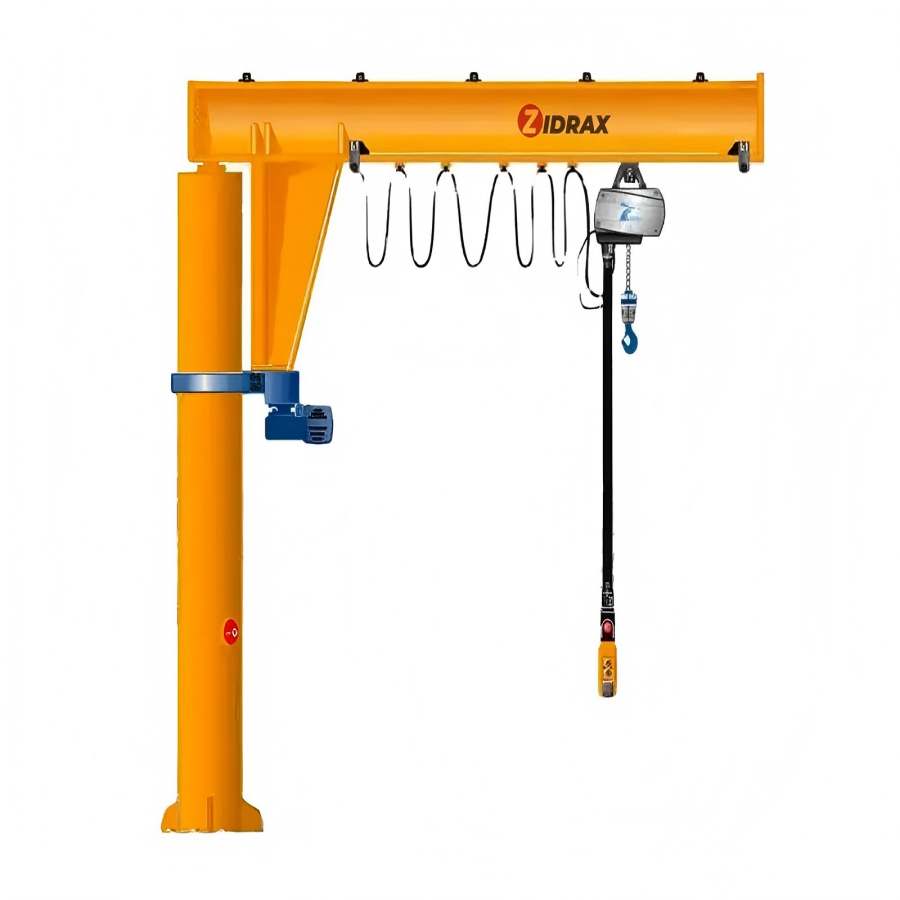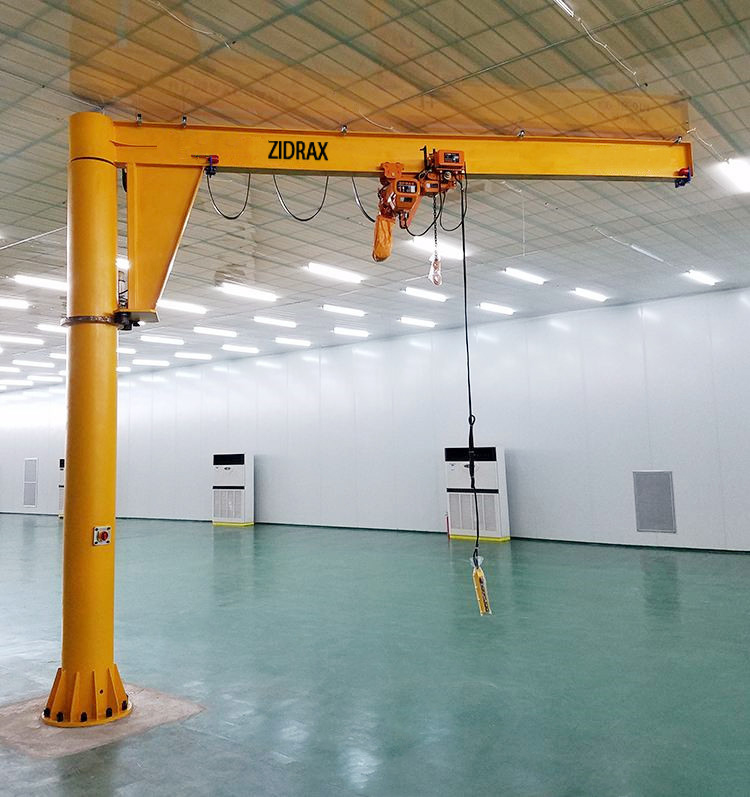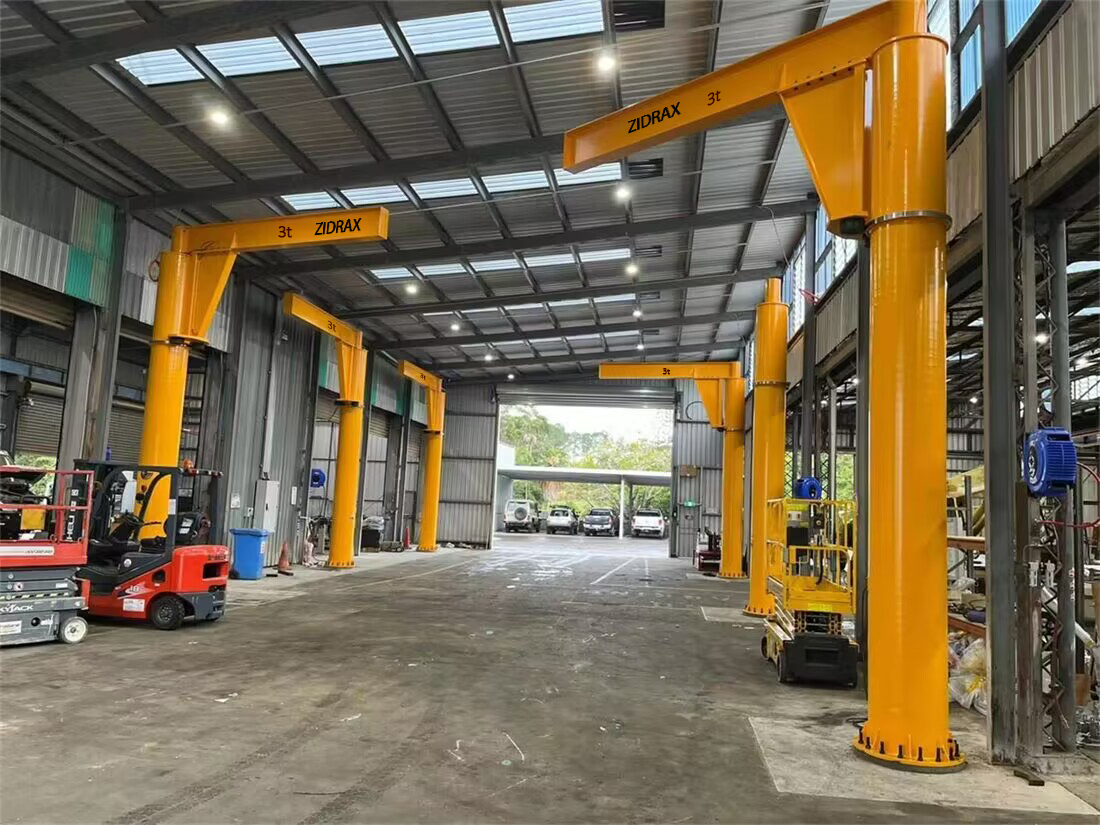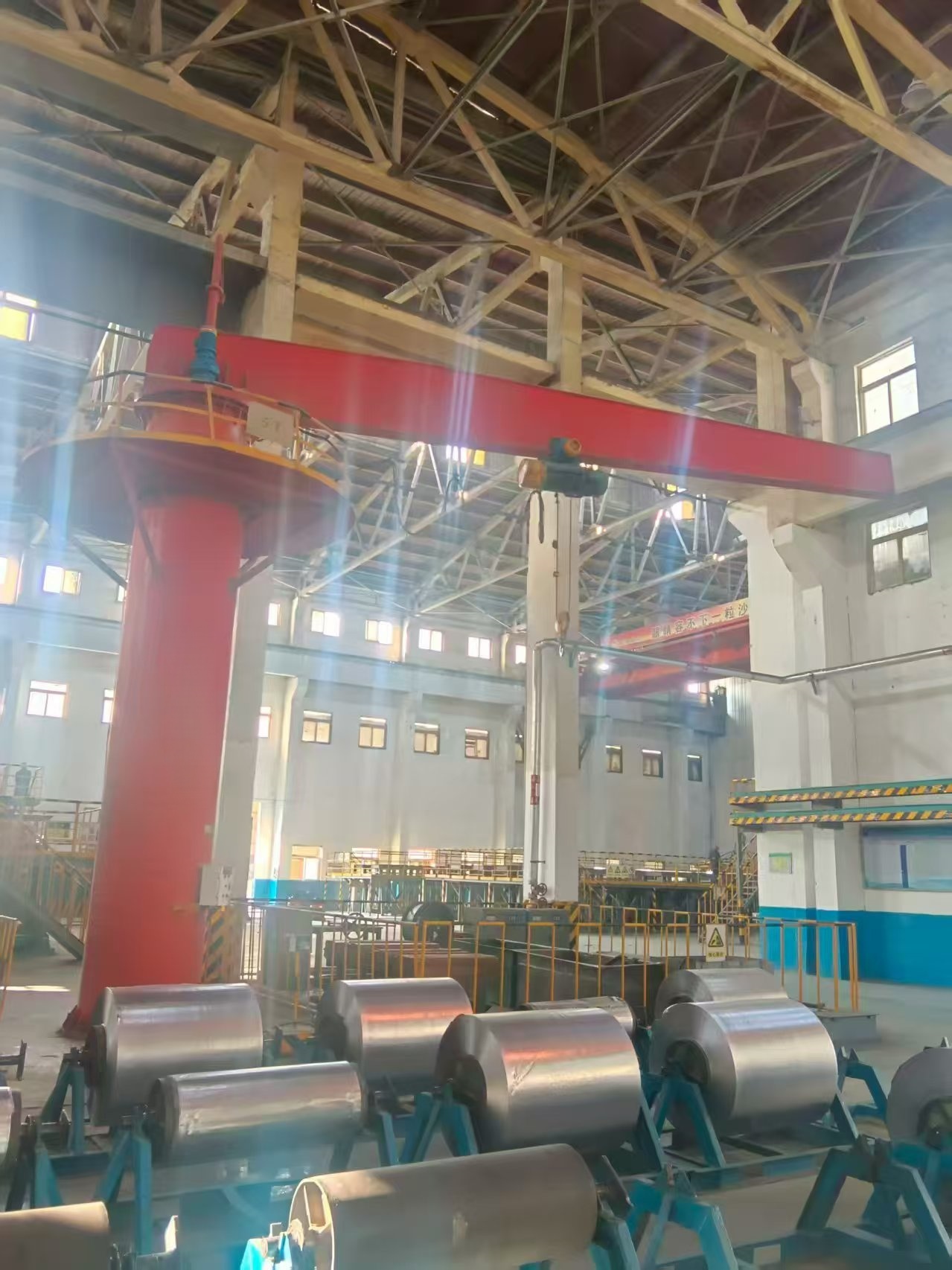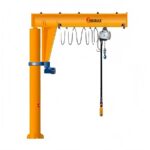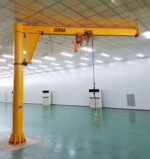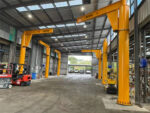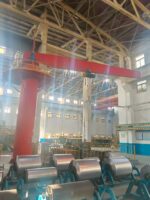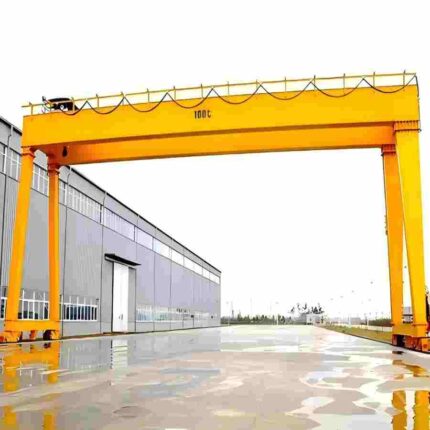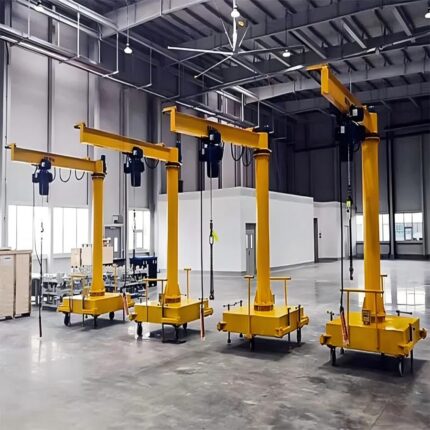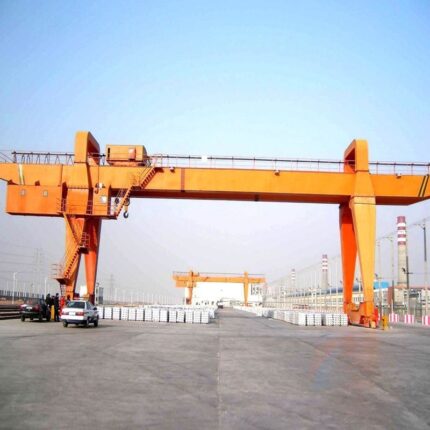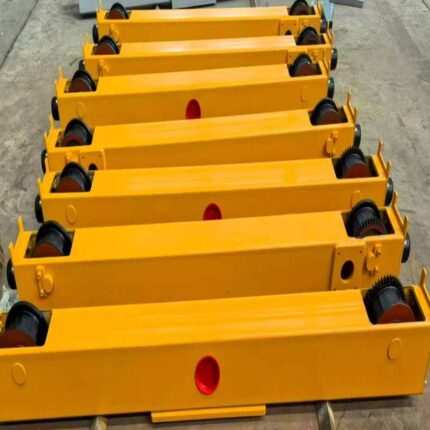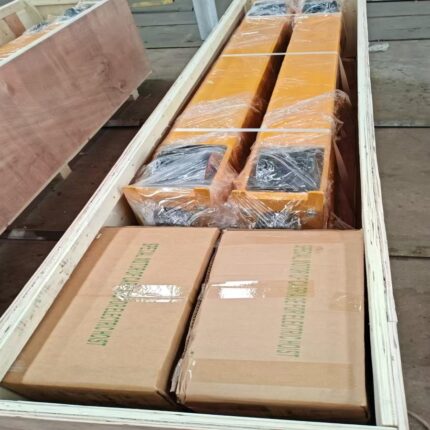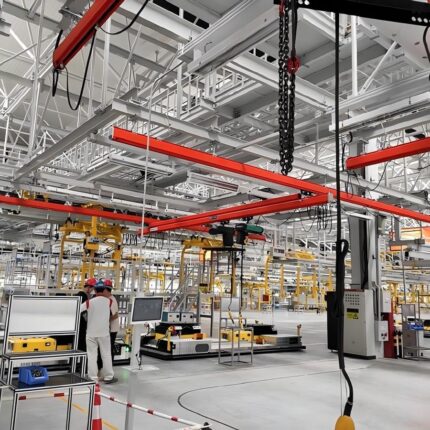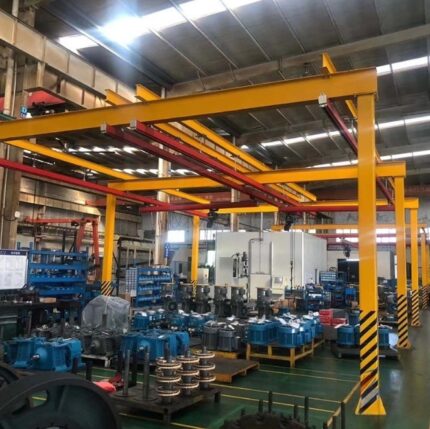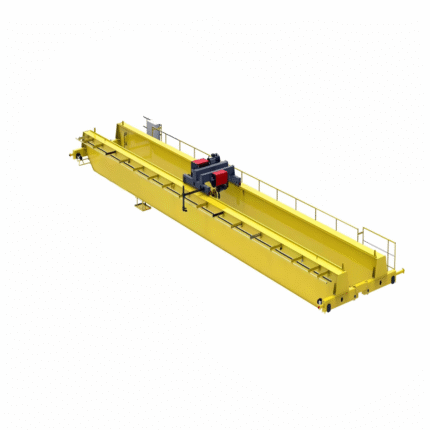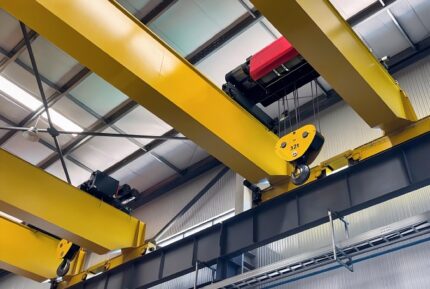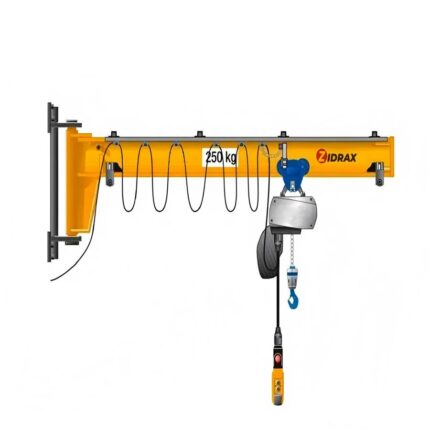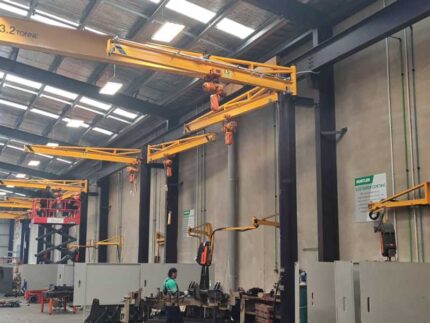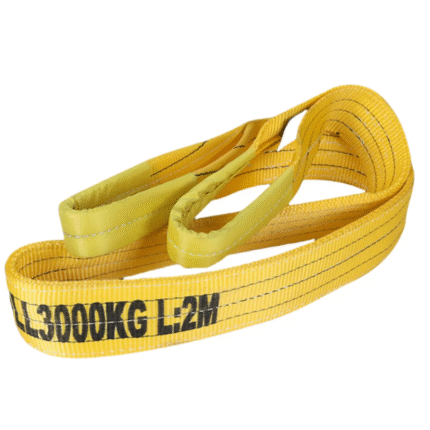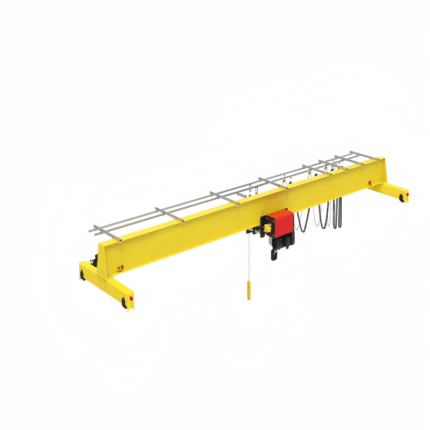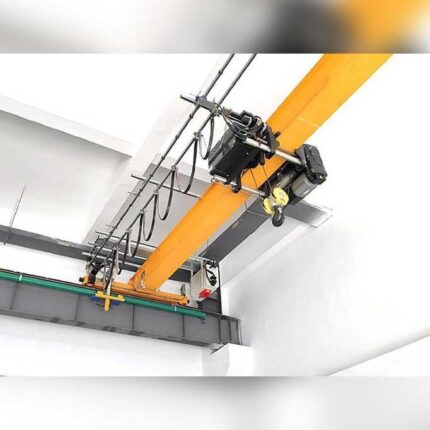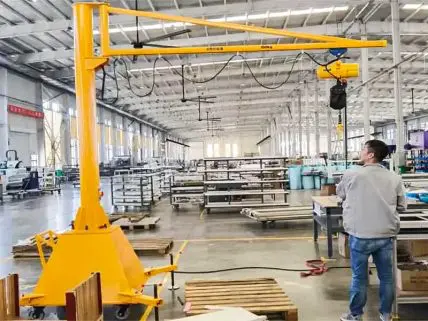Overview
Pillar Jib Crane is a lifting equipment with vertical columns as support and horizontal cantilever as the core of operation, which is specially designed for local material handling needs. It has a simple structure and flexible installation, and is widely used in factory workshops, warehousing logistics, automobile repair and port terminals. Compared with traditional bridge cranes or wall-mounted jib cranes, pillar jib cranes do not need to rely on walls or elevated tracks, and can achieve 360° rotation operation through an independent base, significantly improving space utilization.
According to the design type, pillar jib cranes are mainly divided into the following three categories:
Freestanding: directly fixed to the ground, suitable for medium loads and conventional working environments.
Foundation-Mounted: requires pre-buried concrete foundation, with stronger load-bearing capacity (up to 20 tons), suitable for heavy industrial scenes.
Portable: equipped with moving wheels, can quickly adjust the workstation, and flexibly respond to temporary handling needs.
Pillar jib cranes have become an indispensable material handling tool in modern industry with their high efficiency and economy.
Core structure and working principle
Pillar/Mast
Material and Design: High strength carbon steel (such as Q345B) or I-beam structures are usually used, and some outdoor models use hot-dip galvanized steel to enhance corrosion resistance.
Function: As a vertical support core, the column is fixed to the ground through a base or embedded bolts to ensure the stability of the crane under load.
Boom
Structure: Horizontal extension arm, usually 3-12 meters in length, can cover the work area within a radius range.
Rotation range: Standard models support 180 °~360 ° rotation, while some customized models can achieve unlimited rotation.
Slewing Unit
Driving mode:
Gear drive: High precision, high torque, suitable for frequent rotating operations.
Roller drive: low friction, easy maintenance, suitable for light loads.
Control: Operated through manual joystick, electric buttons, or wireless remote control.
Counterweight
Function: To counteract the overturning moment generated by the cantilever end load and prevent the crane from tilting.
Design: The counterweight is usually installed at the bottom or rear of the column, and its weight is dynamically adjusted according to the load and cantilever length.

Working principle
When the operator starts the crane, the power system drives the rotating mechanism, which drives the cantilever to rotate horizontally to the target position. Electric hoist or manual chain moves along the cantilever to achieve vertical lifting and horizontal handling of materials. Balancing weights and structural rigidity together ensure operational safety.
Typical application scenarios
Factory Workshop
Equipment maintenance: Lifting heavy components such as machine tools, molds, and engines to reduce the risk of manual handling.
Production line feeding: Accurately transport raw materials to processing stations to improve production efficiency.

Warehousing and Logistics
Shelf replenishment: Flexible handling of pallet goods in narrow passages to optimize storage space.
Loading and unloading area operation: Collaborate with forklifts to quickly complete truck loading and unloading tasks.
Automotive Maintenance
Disassembly and assembly of powertrain: Lift the gearbox and engine (with a load of 3-5 tons) to shorten maintenance time.
Feature & Advantage
High flexibility
- 360° rotation: covers the circular working area and can be transported without dead angles.
- Rapid deployment: no complex track or wall reinforcement is required, and the installation period is short.
Cost-effectiveness
- Low initial investment: 30%~50% cost saving compared to bridge cranes.
- Easy maintenance: modular design, fast component replacement, and annual maintenance cost is less than $1,000.
Strong adaptability
Applicable to multiple environments: optional anti-corrosion, explosion-proof or low-temperature resistant configurations, suitable for -20℃ to 50℃ environments.
Outstanding safety
- Overload protection: sensors monitor the load in real time and automatically lock when the limit is exceeded.
- Emergency braking: mechanical brakes take effect immediately in the event of power failure or abnormal conditions.
Installation requirements and foundation design
Foundation preparation
Concrete base:
Thickness ≥600mm, compressive strength ≥C30.
Pre-embedded bolt specifications: M20~M36, spacing is precisely arranged according to the design drawings.
Horizontal calibration: the verticality deviation of the column must be ≤1/1000, and a laser level is used for detection.
Installation steps
- Base casting: Construction according to the drawings, maintenance period ≥7 days.
- Column fixing: After the bolts are tightened, secondary grouting is performed to fill the gap.
- Cantilever assembly: Hoist the cantilever and connect the rotating mechanism to test the smoothness of the rotation.
- Electrical wiring: Install the control panel, limit switch and power line.
Special environment adaptation
Soft soil foundation: Piling or laying of steel plates is required to disperse the load.
Inclined ground: Customized leveling base, inclination angle ≤3°.
Customized solutions
Customized load and span
- Heavy load: Double cantilever structure or reinforced I-beam, load capacity extended to 50 tons.
- Extra-long span: When the cantilever length is greater than 12 meters, a truss design is used to reduce the deadweight.
Special environment configuration
- Explosion-proof model: suitable for chemical and mining scenes.
- Food-grade stainless steel: surface polishing, in line with hygiene standards.
FAQ
Q1: How long is the service life of a column-type cantilever crane?
A1: Under normal use and maintenance, the service life can reach 15 to 20 years, and key components (such as wire ropes and bearings) need to be replaced regularly.
Q2: Can it be used outdoors?
A2: Yes, but you need to choose hot-dip galvanized or stainless steel materials, and install a rain cover to protect the electrical system.
Q3: Does the installation require a professional team?
A3: Our company will provide detailed instructions and online guidance. Generally, you can install it yourself. If you encounter difficult installation problems, we will send engineers to solve your problems.
Q4: How to determine whether the load is overloaded?
A4: The crane has a built-in overload sensor, which will trigger an audible and visual alarm and stop running when it exceeds the limit.
Q5: How long is the maintenance cycle?
A5: Check the lubrication points daily, test the brakes monthly, and conduct a comprehensive overhaul annually.
For inquiry, please send email: info@zidraxcranes.com

